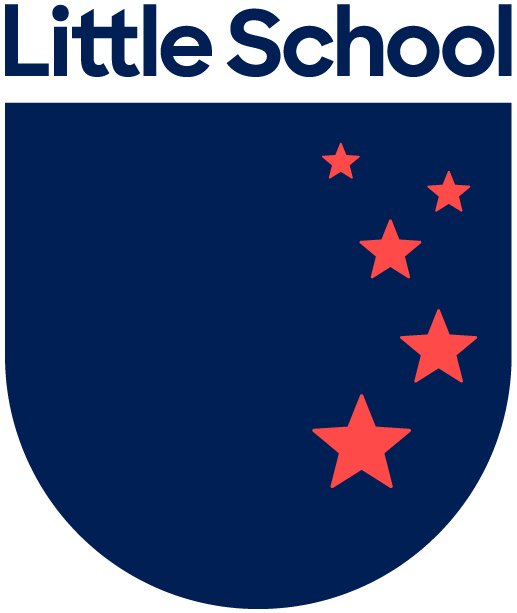
We incorporate the philosophies of many theorists and educationalists from all over the world.
Programme
The Little School programme incorporates the philosophies of many theorists and educationalists from all over the world. The best from each of these ideas and theories, along with the New Zealand early childhood and primary based curriculums, are what creates our unique programme.
This comprehensive approach ensures that we not only prepare children for life, equipping them for the future, but also supports the development of each child’s unique qualities.
Brain Gym
Brain Gym is a programme of physical movements that enhance learning and performance in all areas. It is a programme dedicated to enhance living and learning. Research shows that children who are involved with brain gym exercises and who cross the left side of the brain with their right have dramatic improvement with learning.
Sensory Motor Development and Integration
Sensory Integration is a process that occurs in the brain. It allows us as individuals to take information through our senses, organise it and act and respond according to any situation. It is also the process which allows us to filter out any unnecessary sensory information. Sensory Integration forms the underlying foundation for academic learning and social behavior.
There is a greater awareness in society of the importance of physical and cognitive development in young children. There is also an increased need by teachers and parents to have a greater understanding of how this effects children’s learning. The motor development programme designed for Little School allows our team to work with children, to help ensure all areas of development are included in our programme. By incorporating sensory motor development, we are building strong foundations for children so they are ready for academic learning.
Literacy
Reading, writing, listening and talking are all parts of early literacy learning and they are all connected. Early experiences are essential for children’s development of a variety of important literacy skills, such as concepts of print and phonological awareness (IRA & 1998, Green, Peterson & Lewis 2007).
At Little School we believe phonetic awareness is crucial for early reading success. At the age of four, all children begin an individual reading programme. This programme enables children to be exposed to letters, sounds and print. Little School teachers strongly value a well balanced literacy programme. We believe an early start to literacy activities is crucial to laying the foundation for achievement for all children. To delay reading and writing until they are perceived to be 'ready' only increases the disparities of school life.
Maths
The Little School Programme focuses on early numeracy awareness and concept development. A grasp of basic mathematical concepts is vital for children starting school.
Writing
At Little School, children are given opportunities to explore writing for a purpose as they play. They are encouraged to practice their writing skills through a mixture of cross-curricular free play and adult led activities.
Music
Music is a vital part of our programme at Little School. Music provides opportunities for children to learn, both socially and educationally. When children participate in singing, movement and dance their confidence and oral language is extended.
Virtues
“Simple ways to bring out the best in the children and ourselves”.
The virtues programme empowers children to live by their highest values. Each day working alongside children bring fresh opportunities for guiding them. ‘Teachable moments pass quickly and may never come again’. The virtues programme provides our teachers with a framework and language for making the most of these moments. Examples of virtues are, respect, reasoning, responsiblity.
Creative Development/Fine Motor Development
Art and Creative Development are integrated throughout our daily programme at Little School. Children are encouraged to use equipment independently to gain confidence. Fine motor control is essential for children to be able to do tasks independently.
Our hours
Little School offers an 8:30am - 3:30pm programme. All schools also have extended hours from 8am until 5:30pm.
We are open all year, including school holidays. We close for a 2 week period over the Christmas and New Year break.
Dates for 2025
2025 Year begins on Monday 6th January 2025
Waitangi Day (6th February), Good Friday (April 18th), Easter Monday (21st April), Anzac Day (25th April), King’s Birthday (2th June), Matariki (20th June), Labour Day (27th October).
School year ends on Tuesday 23rd December 2025 at 3.30pm and re-opens on Wednesday 7th January 2026.
Daily Programme : 2-6yr old’s
8:00am - 9:00am
Children arrive to Little School. Fine Motor Skills equipment set out in the Main Room for children to do, as everyone is arriving for the day.
9:00am - 9:30am
Mat Time and Junior Mat (age appropriate)
9:30 - 10:00am
Group Activities (optional age appropriate)
10:00am - 11:15am
Rolling Morning Tea
10:00am - 11:45am
Developmental/Choosing Time and reading programme
11:45am - 12:00pm
Story and News time
12:00pm - 12:30pm
Lunch Time
12:30pm
Sleepers to bed
12:30pm - 12:45pm
Quiet Time
12:45pm - 1:30pm
Developmental / Choosing Time
1:30pm - 2:00pm
Group Activities (optional age appropriate)
2:00pm - 3:10pm
Developmental Time / Choosing Time and Rolling Afternoon Tea
2:30pm
Sleepers awake and dressed
3:10pm - 3:30pm
Story and Farewell Mat
3:30pm - 5:30pm
Developmental Time / Choosing Time


